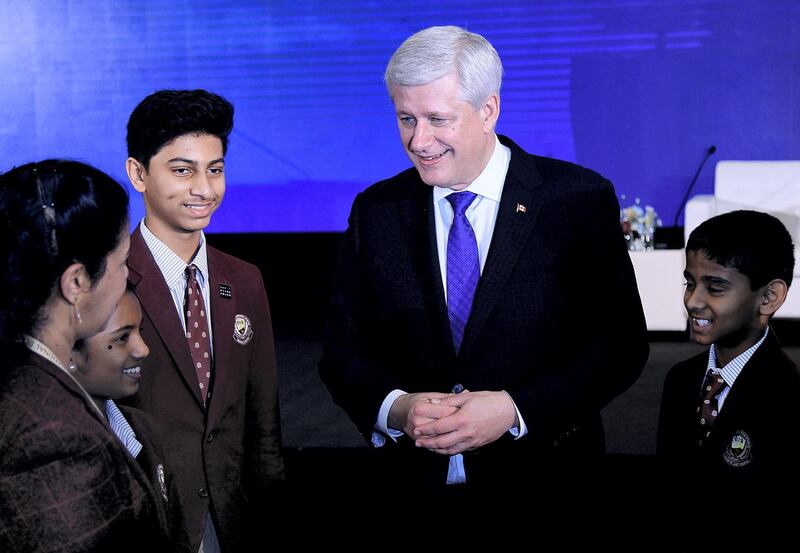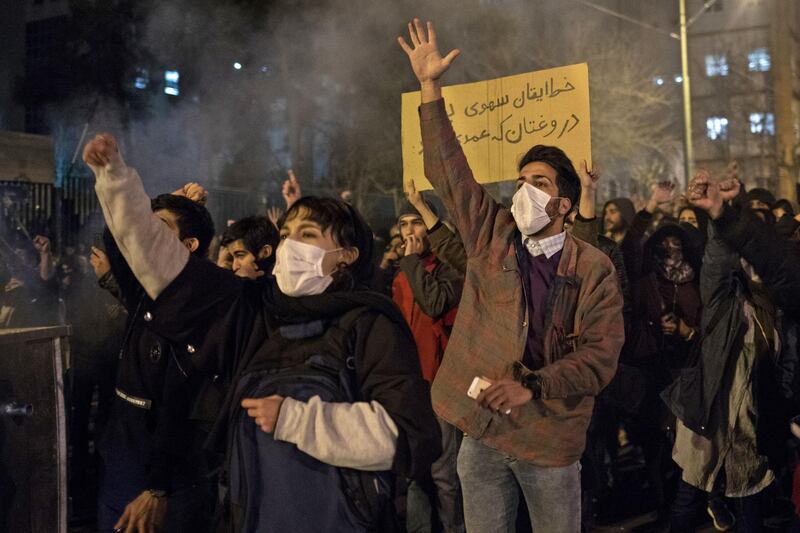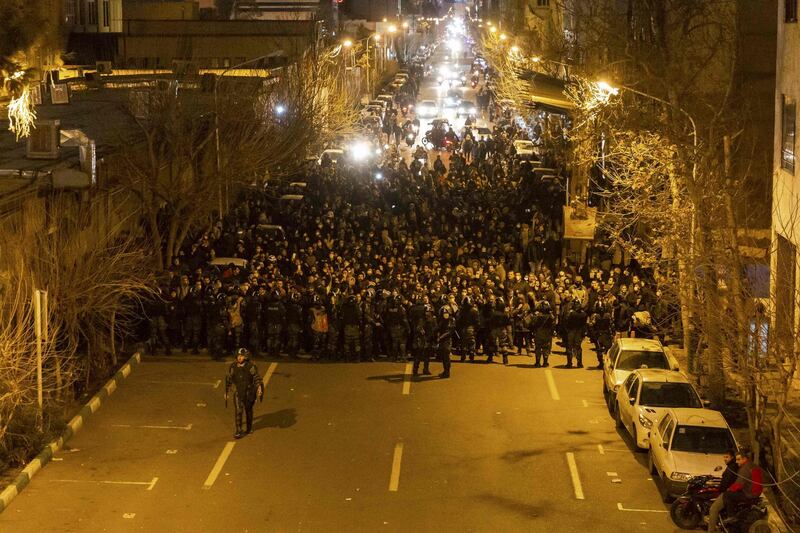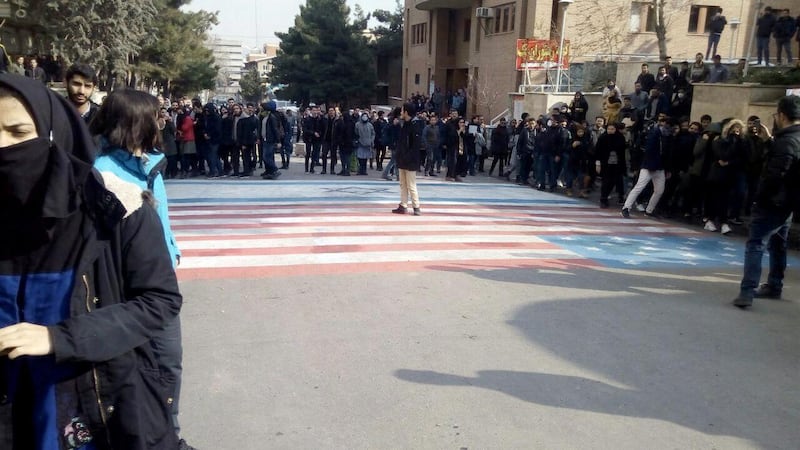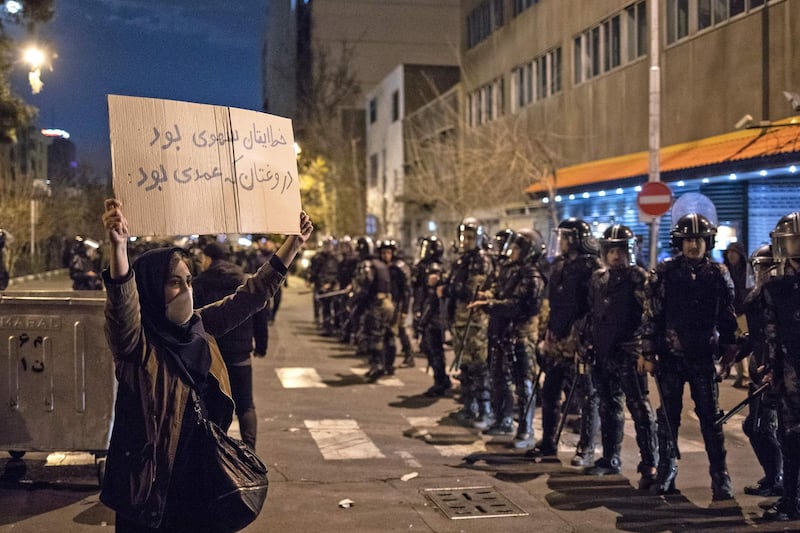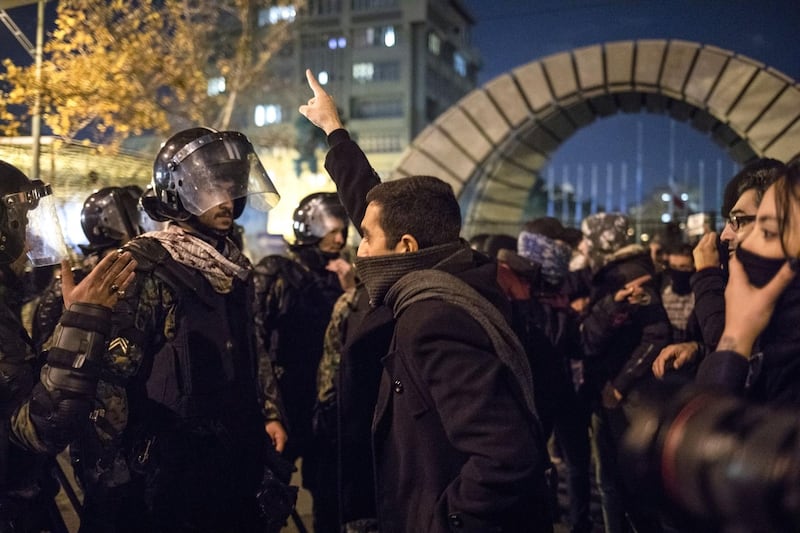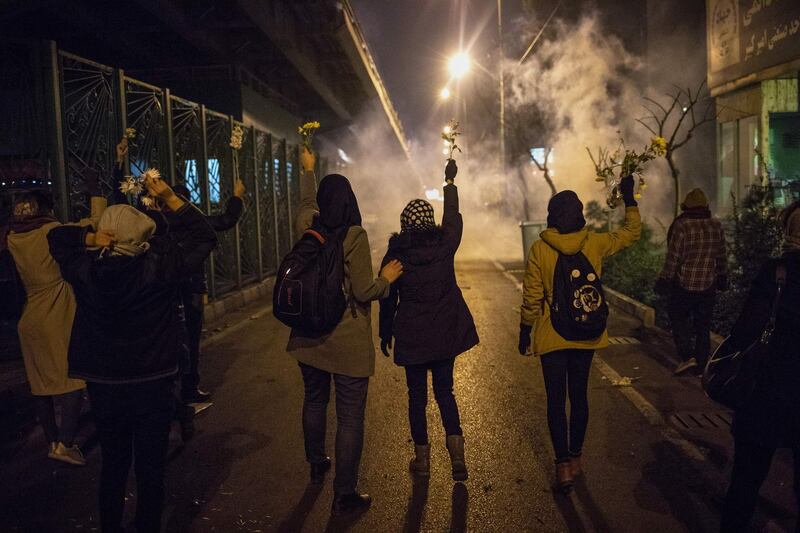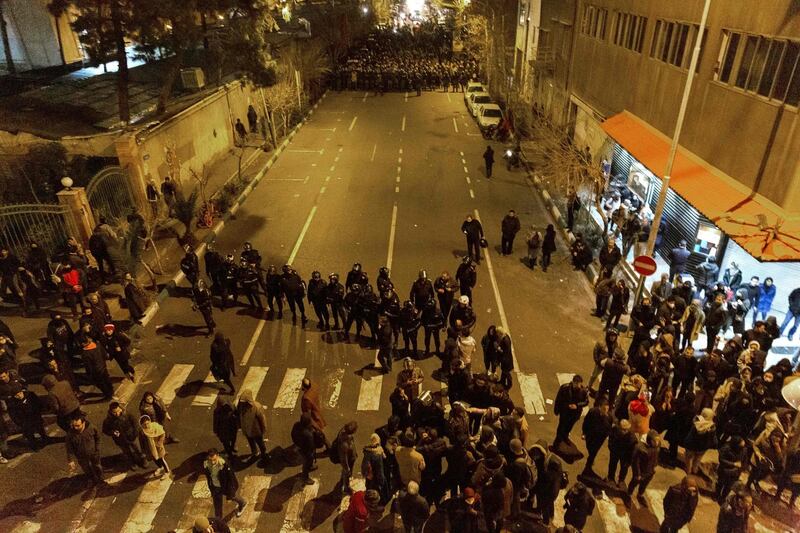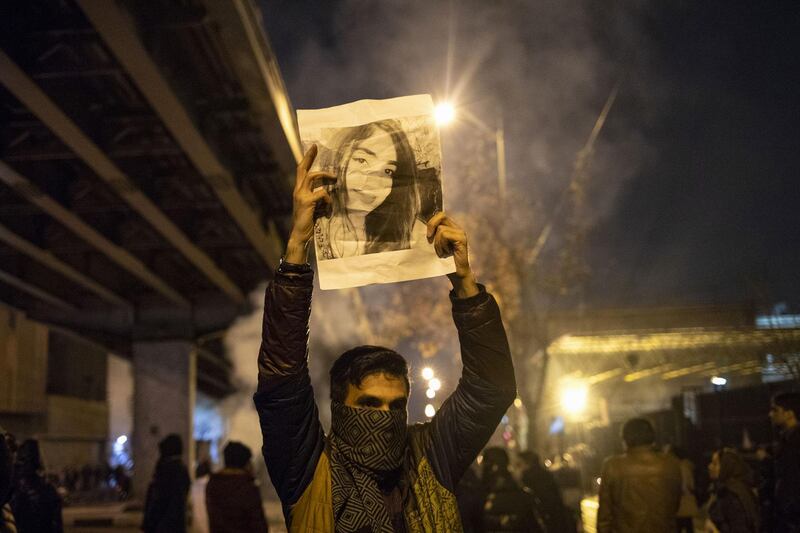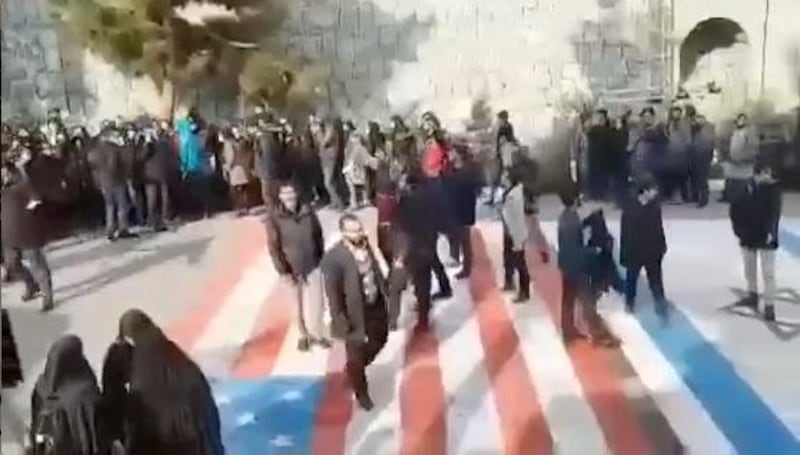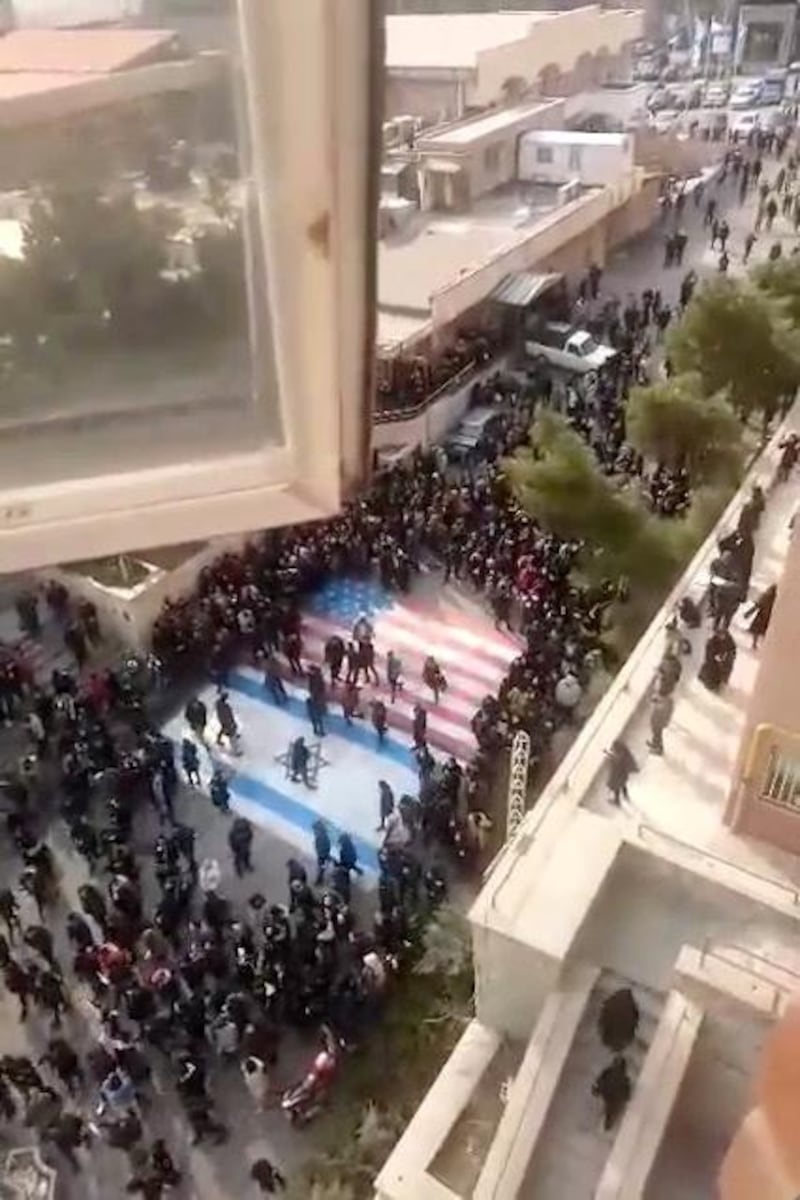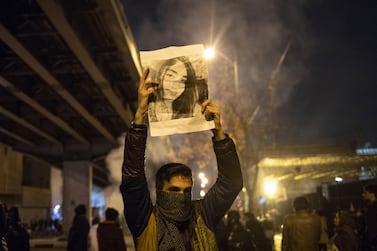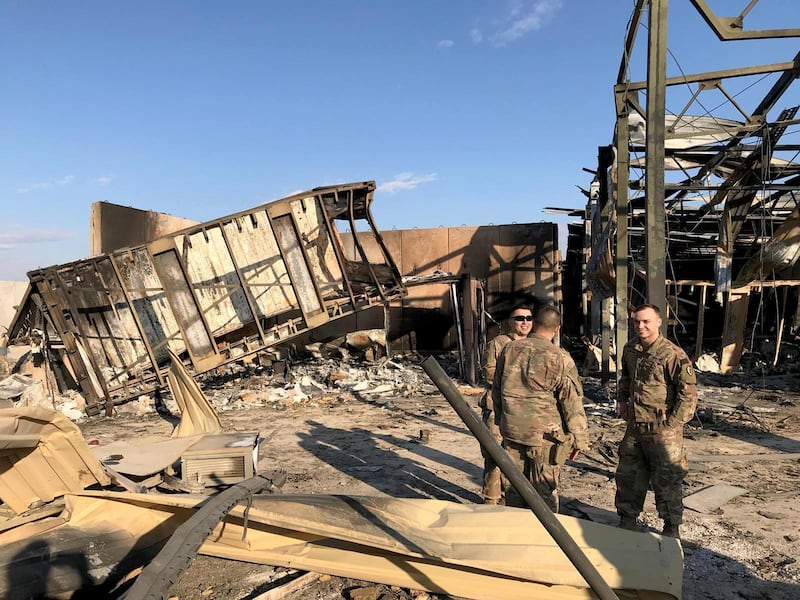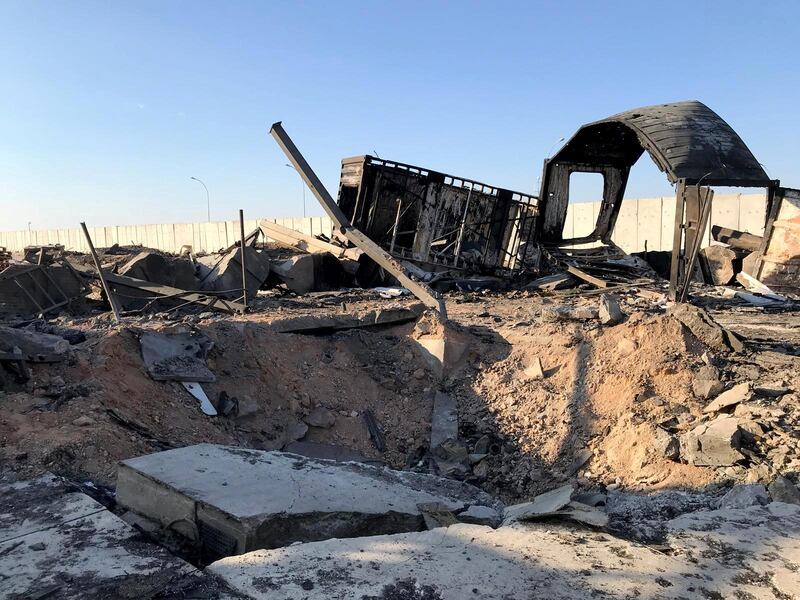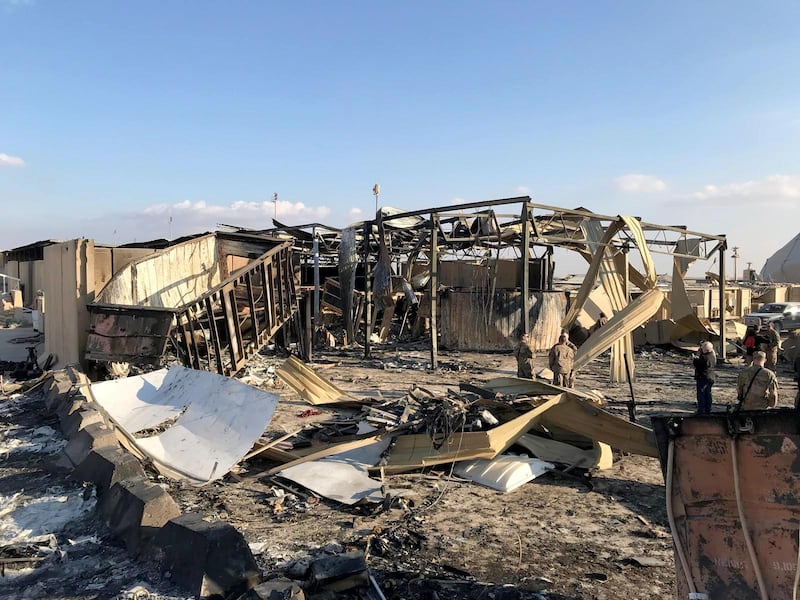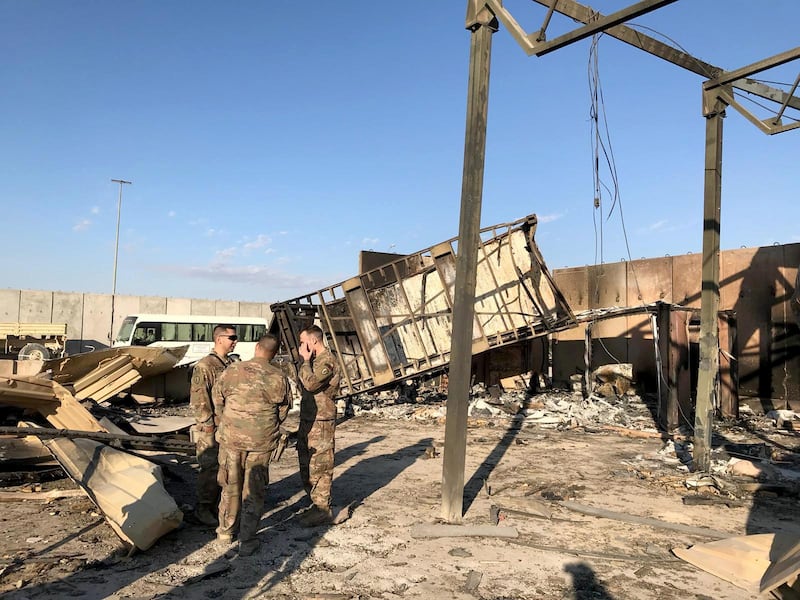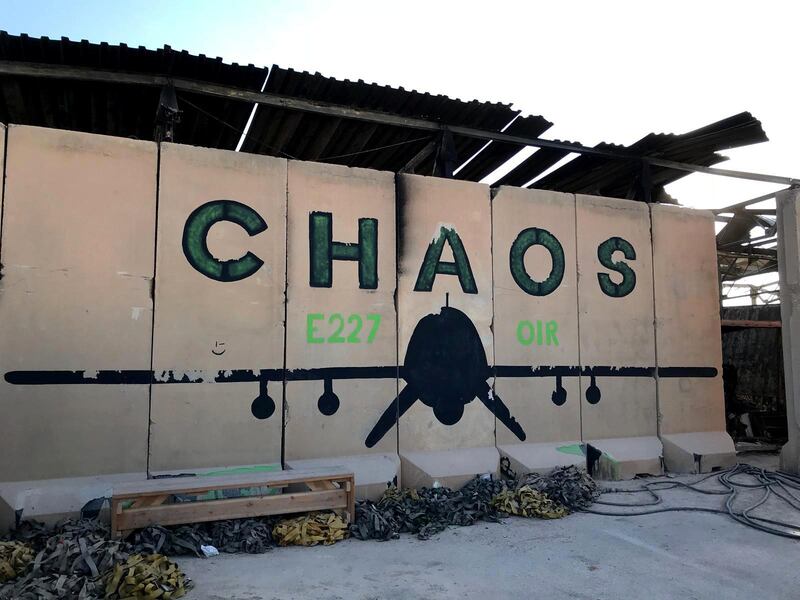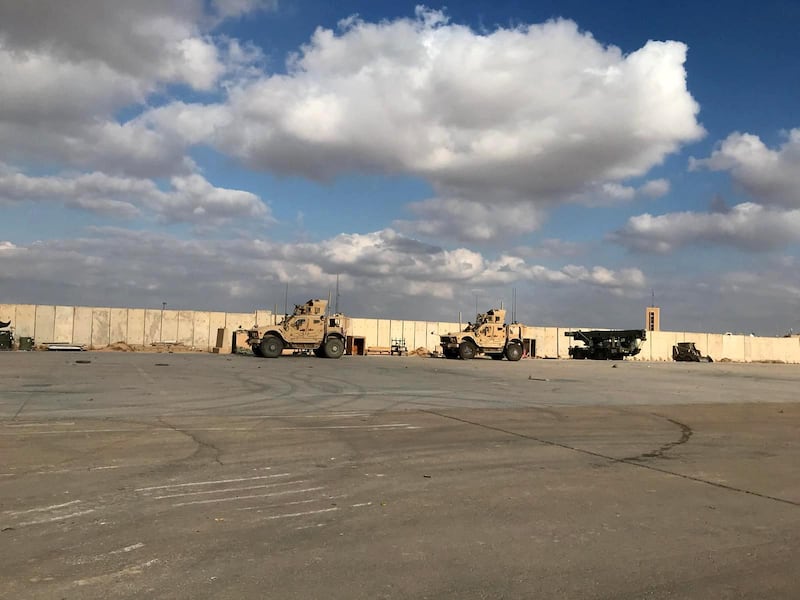Former Canadian prime minister Stephen Harper said Iran's mistaken shooting down of a Ukrainian passenger flight shows that the Middle East will struggle to find peace until there is a regime change in Tehran.
Speaking at a three-day diplomatic event In India on Tuesday, Mr Harper strongly criticised Iran over the downing of the flight, which killed 176 people, including 63 Canadians.
The incident, which Iran says was a mistake, came as Tehran launched missiles at Iraqi military bases housing US troops in retaliation for the killing of the commander of its elite Quds forces Qasem Suleimani in a US drone strike.
“I don’t think any of us believe that Iran would have deliberately shot down an aircraft but the very fact that Iran believing such a thing could have happened allowing normal civilian traffic tells you something about the nature of that regime and its priorities,” Mr Harper said.
“Until there is a change in the government in Iran, the Middle East will be on turmoil."
The Raisina Dialogue, which brings together top diplomats, politicians and military experts to talk about challenges confronting the world is co-organised by the foreign ministry and Delhi based think-tank Observer Reserach Foundation. India has increasingly asserted its global position through the annual event.
More than 2,000 participants, including over 600 delegates and 116 speakers from around the globe will attend the dialogue, which will focus on trade wars, global security, the current role of technology, climate change and fake news until January 16.
Tensions have soared between the US and Iran since US President Donald Trump pulled out of Iran's nuclear agreement with world powers.
Also speaking at the event, former Afghan president Hamid Karzai, a close ally of Iran, equated US interference in the region with the invasion of Afghanistan in 2001.
“Iran is a great historical and cultural entity and America must recognise it cannot force countries to follow their line always. I hope wisdom will prevail,” he said.
Mr Karzai also said that he hopes for a peaceful future for his war-ravaged country.
Australia's Prime Minister Scott Morrison, who was invited as the chief guest and had been scheduled to deliver the inaugural address, pulled out of the meeting because of the devastating bushfire crisis in his country. He sent a video message instead in which he lauded New Delhi's active role in the Indo-Pacific and said India remained a "strategic lynchpin" in its region.
"The term Indo-Pacific reflects the recognition that India's power and purpose will be vitally important to the region and to resolving and supporting shared security challenges. India has taken on an increasingly active role in the Indian Ocean," he said.
The event was attended by Prime Minister Narendra Modi and seven former heads of states, including Danish former premier and ex-Nato Secretary General Anders Rasmussen.
Mr Rasmussen said New Delhi could play an important role in a coalition of global democracies in challenging the rouge and oppressive regimes.
"India can play an important role in this … I am an admirer of Narendra Modi and India's participation in this alliance is important," he said.
Iran's Foreign Minister Mohammad Javad Zarif and his Russian counterpart Sergey Lavrov will address foreign minsters at the dialogue on Wednesday, which could see discussion turn to the fallout from the US action in Iraq.
